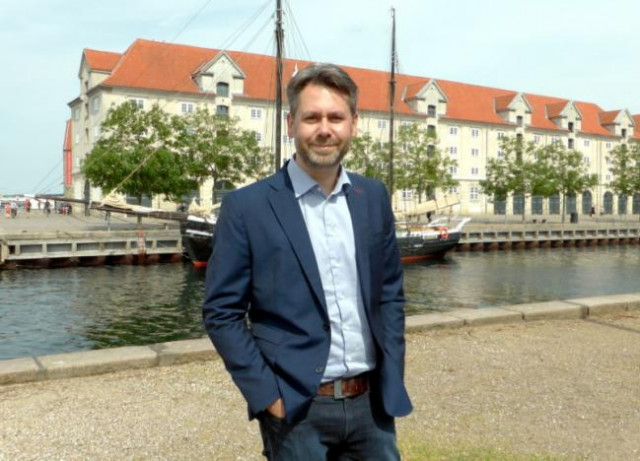Top tech firms more powerful than many nations, says first tech ambassador
Facebook's current market value larger Denmark's 2016 gross domestic product

Denmark's tech ambassador Casper Klynge poses for a picture in Copenhagen, Denmark. PHOTO: REUTERS
Chosen to fill what his country's foreign ministry has dubbed the first "techplomacy" posting on the US West Coast, Denmark's Casper Klynge will be tasked with building direct ties between his country and the likes of Facebook, Apple and Alphabet's Google.
"We are to continue doing traditional diplomacy with countries and organizations, but we also have to start looking into what relation you can have with these big tech companies," Klynge told Reuters in an interview.
The aim was to help Denmark understand the impact of rapid changes in digital technology while promoting the country's interests and values - setting up a channel of communication that would also benefit the companies.
Tech CEOs meet with Trump on government overhaul
"If you look at these companies' involvement and significance for you and me, many of them have a much greater degree of influence than most nations," he said in comments cleared for publication late on Friday.
In economic terms, the new partners are comparable.
Denmark's 2016 gross domestic product was 2.06 trillion Danish crowns ($310 billion), sitting between Facebook's current $437 billion market value and the $185 billion of Oracle Corp.
With tech companies under growing pressure to share encrypted information to prevent terrorism, Klynge also identified the ability of radical individuals or groups to exploit online platforms as a key issue.
Tech sector leads resistance to Trump travel ban
"We saw what happened after the terror acts in London when Facebook came forward and said they are ready to discuss how we prevent terror organizations using its network to promote their actions," said Klynge, who takes up his new role on Sept 1.
In May, Facebook was fined 150,000 euros ($166,000) by France's data protection watchdog for failing to prevent users' data being accessed by advertisers.
"If you look at what impacts us in our daily lives and how much data they can pull on all of us... (the firms) are truly influential players," Klynge said.
Technological diplomacy is one of Denmark's five foreign policy priorities alongside national security; Brexit; the Arctic region; and migration, instability and terrorism.



















COMMENTS
Comments are moderated and generally will be posted if they are on-topic and not abusive.
For more information, please see our Comments FAQ